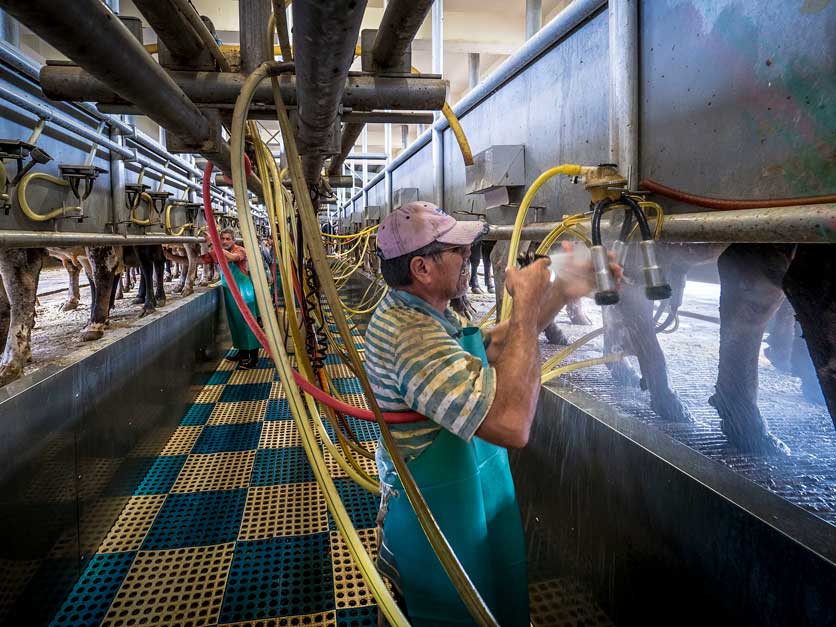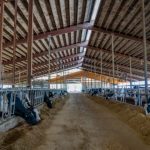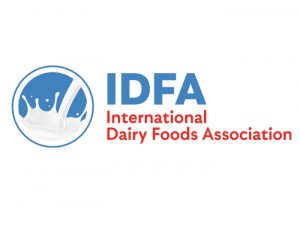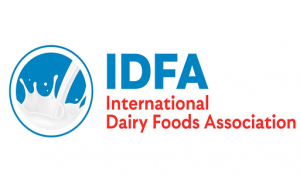
Dairy Farmers of America, a major dairy cooperative with 83 processing facilities, had decided to withdraw its membership from the International Dairy Foods Association over IDFA’s decision to proceed with its single-issue petition to modify the federal milk marketing order system.
IDFA proceeded ahead of the National Milk Producers Federation to petition for changes to the FMMO. IDFA’s proposal focused initially on just the call to change how make allowances — an estimate of dairy processing costs — are configured. NMPF asked USDA to consider more comprehensive changes to the way milk products are priced.
“While IDFA generally maintains a neutral position on policies lacking full membership consensus, a critical exception was made earlier this year when they submitted a divisive milk pricing policy proposal to USDA,” DFA said in a statement to Agri-Pulse.
“This placed DFA in the untenable position of being represented as supporting a policy position, which contradicts what we believe to be in the best interests of our farmer owners and the dairy industry,” DFA said. “Following requests to return to a neutral policy position until a consensus position could be reached, DFA made the difficult decision to submit notice to withdraw from IDFA membership.”
Matt Herrick, IDFA’s senior vice president of public affairs and communications, said in an email to Agri-Pulse that IDFA believes the organization’s job is to be “inclusive and balance the association’s diverse interests.”
“We are confident that we are taking a balanced, inclusive approach that is in the best interest of the full dairy supply chain. Several other dairy associations and companies have submitted proposals that align with IDFA’s positions, as well,” Herrick said.
USDA has not made an official decision on whether it will hold the hearing process based on the petition requests. In a pre-hearing information session held Friday, USDA said it is considering 38 proposals from 12 different organizations. The pre-hearing allowed USDA to hear directly from dairy industry members and representatives and USDA could discuss operational and implementation provisions of the different proposals.
Ahead of the pre-hearing, IDFA also introduced an updated proposal on Class 1 — fluid milk — pricing. NMPF’s broader proposal called for a change to the “higher of Class 1 mover” which reverts policy that was changed in the 2018 farm bill. IDFA introduced a new alternative “floored Class 1 mover proposal” which allows a “look back and make whole” process to take a prior 12-month look at how to average the mover.
Herrick said IDFA has been engaged in an extensive process with several dozen meetings and multiple streams of work internally with its members. “It is because of our diverse membership that we can submit a balanced approach that is based on sound data and beneficial to both processors and dairy farmers,” Herrick said.
If USDA decides to move forward with a hearing, it will be held in Carmel, Indiana, on Aug. 23, USDA officials said.
Daniel Munch, an economist at the American Farm Bureau Federation, told Agri-Pulse the pre-hearing showed the shared interest between USDA and the different stakeholders in minimizing the impact of proposed changes on producers and the dairy market. Although there are 38 different proposals, Munich said certain components overlap. Munch said a common theme is a mandatory survey on processing costs, instead of the current regime of plants voluntarily reporting their costs, which are then used to set the make allowance levels.
Edge Cooperative CEO Tim Trotter said in an email to Agri-Pulse that this entire process is important to ensure all proposals are thoroughly reviewed before any commitments are made to a “lengthy and costly hearing.” Edge believes USDA should wait to move forward on its hearing until after it sees what legislative action Congress may pursue in the farm bill.
“Edge believes there are several items that must be addressed before a hearing — including increased flexibility and transparency to strengthen partnerships between farmers and their milk buyers,” Trotter said. “However, should a hearing take place, Edge will continue to serve as the voice of farmers in the Upper Midwest.”






















